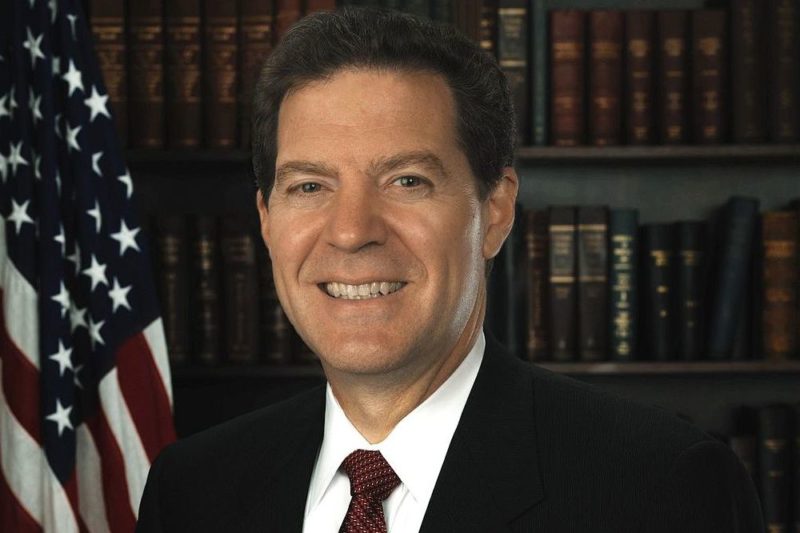Kansas Governor Signs ‘Dangerous’ Anti-Choice Bill Into Law
Gov. Sam Brownback during a private ceremony Tuesday signed a bill that made his state the first in the nation to criminalize a medical procedure used after a miscarriage and during second-trimester abortions.

Kansas Gov. Sam Brownback during a private ceremony Tuesday signed a bill that made his state the first in the nation to criminalize a medical procedure used after a miscarriage and during second-trimester abortions.
The Republican governor was joined by anti-choice activists as he signed into law SB 95, which would outlaw dilation and evacuation (D and E) procedures.
An exception is included in the law that allows the procedure if it is necessary to preserve the life of the pregnant woman or if a continuation of the pregnancy will cause substantial and irreversible physical impairment of a woman’s major bodily function.
The new law will ban abortion providers from using the procedure that is used in 8 percent of all abortions, about 600 annually, performed in the state, reports the Topeka Capital-Journal.
Julie Burkhart, founder and CEO of Trust Women and the South Wind Women’s Center, said in a statement that the new law will disrupt the trusted physician and patient relationship by prohibiting physicians from using their sound medical judgment to decide what is best for their patients.
“This dangerous law dictates to qualified physicians how they can practice medicine and treat their patients,” said Burkhart in the statement. “It withholds the standard of care from women seeking necessary medical care and contains clear contradictions with decisions by the Kansas Supreme Court and the United States Supreme Court.”
The bill, model legislation drafted by the anti-choice National Right to Life Committee (NRLC), redefines the D and E procedure as “dismemberment” abortion. The new law’s graphic and medically inaccurate language describing the D and E procedure is key to NRLC’s strategy to pass similar laws in other states.
Bills to ban the D and E procedure have also been introduced in Oklahoma, Missouri, and South Carolina.
A spokesperson said that Brownback hopes to make Kansas a model for the nation. “This is a horrific procedure,” Brownback spokesman Eileen Hawley said. “He hopes the nation follows suit.”
Kathy Ostrowski, Kansans for Life’s legislative director, was among those who joined Brownback for the bill signing. Ostrowski, in a statement following the bill’s signing, used graphic language that has become common in stigmatizing the D and E procedure.
“SB 95 bans a particularly gruesome abortion method in which a living unborn child in her mother’s womb is ripped apart into pieces by an abortionist using sharp metal tools,” Ostrowski said, reports the Topeka Capital-Journal.
Laura McQuade, president and CEO of Planned Parenthood Advocates of Kansas and Mid-Missouri, said in a statement after the bill signing that SB 95 is another example of how Kansas continues to be an outlier state on economic and social issues.
“Kansas is now not only the sole state with this atrocious law; it also now has more restrictions on abortion than any state in the US,” McQuade said. “The majority of Kansans know you can’t build a strong, inclusive economy by stigmatizing and punishing more than 50 percent of the electorate.”
Brownback recently said that the anti-choice laws he has signed as governor have been—and will continue to be—an economic boon for the state, despite the well-documented failure of his right-wing economic policy agenda.
Economic data released last week found that the state’s tax revenues for March were $11.2 million below expectations, and public schools in the state are facing a funding crisis that is forcing some of them to close early for the school year.
McQuade criticized the new law, drafted by the NRLC, for not being written by physicians or medical experts. “We will continue to expose all extreme political measures aimed at denying women access to health care and at undermining their decision-making ability,” McQuade said.
Planned Parenthood of Kansas and Mid-Missouri and Trust Women have said that they may challenge SB 95 in court.
The new law takes effect July 1.
